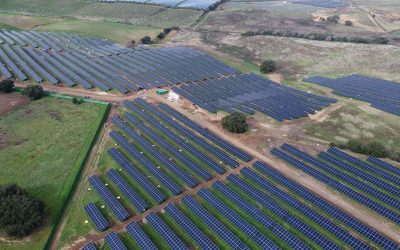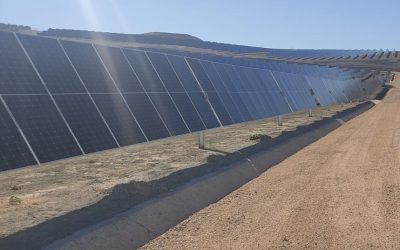Today, the term ESG has become a completely common concept and is used by companies, professionals and the media all over the world. Its origins go back decades, but it became strongly popularised by the 2004 United Nations Global Compact initiative entitled Who Cares Wins, which called for the need to apply the UN’s universal principles to the corporate world. Since then, society has changed and so has the way we do business.
For BNZ, we see our ESG policy as a way to avoid short-term mistakes and make the right decisions for the long term. It is also a way to establish transparent environmental, social and governance guidelines that drive project analysis, decision-making and asset management processes, as well as a way to communicate and explain our ESG vision and approach to all our stakeholders – from investors to government stakeholders, along with suppliers and neighbours of our facilities.
The awareness for having an environmental, social and governance policy is that BNZ has responsibility for the holistic activities that occur in the portfolio and throughout the life cycles of projects. We believe that our responsibilities include long-term risk management through active ownership practices that are sensitive to ESG considerations, and that we have a responsibility to leave the land in better condition than when we found it. In addition, we have great respect for the local cultures, environments and landscapes, as well as the cultural and recreational centres of each of the regions in which we operate.
Climate change and the energy transition are not only affecting our day-to-day behaviour on an individual basis in areas such as responsible consumption and recycling. It has also led us to rethink the way we manage our business, to achieve a higher level of resource efficiency, to ensure the sustainability of our business model and to ensure the positive impact of our activity on the communities in which we operate. For this reason, at BNZ, ESG criteria permeate all of our firm’s day-to-day activities.
First, we are committed to investing in technologies and being an enabler of clean energy that contributes to the reduction of global GHG (greenhouse gas) emissions through the development, construction, management and operation of clean energy projects. This is primarily our raison d’être.
It is also in BNZ’s DNA to offer the best environmental stewardship with additions such as minimising the use of water, electricity, and other natural resources in our operations to avoid waste and encourage reduction, reuse and recycling wherever possible. An example of this is the protection of local aquifers where we operate by avoiding the construction of impermeable structures, as well as BNZ’s agricultural development plans, where we hope to combine, as far as is technically possible, the development of solar energy with the cultivation of indigenous crops and/or respect for local wildlife.
Wherever possible, reforestation and green corridors will be considered at project locations, or on land designated by the authorities, in an effort to reduce or prevent desertification by strengthening the terrain with adequate slopes and drainage to reduce soil erosion. Consideration will also be given to planting local and non-invasive flora and allowing it to expand, to preserve the existing root network and to filter and channel rainwater to the water table. In addition, where feasible, we will aim to conserve the biodiversity of the land, such as with beehives to encourage pollination or to encourage the reproduction of native butterflies, for example. In addition, the grass is maintained by grazing animals, such as sheep, rather than machinery.
Another of the differentiating aspects of BNZ’s projects is the explicit pursuit of positive social outcomes in the local communities where we operate. This is done by supporting local community projects, participating in educational forums and centres such as universities to promote awareness of the importance of renewable energy and contributing to the development of talent in our sector, for example, through BNZ’s participation in university seminars. The ultimate goal, beyond our investments, is that there is also a social return with benefits for society, as in the case of collaboration with social associations and sports institutions to promote healthy living in the North of Portugal.
In terms of our core business, committing to ESG criteria also means contributing to the economic development of communities through the generation of business and job creation, as well as working closely with our suppliers and contractors. This includes promoting ESG criteria among our employees and working together to prevent any discriminatory practices or practices that violate human or labour rights. As an example, BNZ is committed to ensuring that all its staff, and those of its suppliers, receive every assurance that their working hours, wages, welfare facilities and working conditions are in accordance with local laws. And where local laws do not apply or do not exist, BNZ will ensure that best market practices (based on OECD and UN global guidelines) are in place to avoid human rights violations, and training and workshops on this aspect will be implemented for all staff.
In order to lead by example, BNZ will implement appropriate governance procedures to promote diversity and social inclusion in the company, through equal opportunities and a culture of respect and acceptance. These cover all its activities and will enable a proper overview, definition of responsibility and ensure accountability for actions taken in projects, with the aim of generating high standards and practices.
In this regard, BNZ will lead scrupulous monitoring of projects, facilitating stakeholder complaints and consultations, regular reporting of activities to local communities, within a system that ensures strict procedural compliance (overseeing a chain of responsible suppliers who share the same ESG values and principles as BNZ) and responsible corporate behaviour. This means that BNZ will carry out due diligence in monitoring and surveillance for evidence of any forced, involuntary, exploitative, exploitative, underage, illegal and mentally or morally unhealthy labour, including the rejection of modern slavery in agreements with suppliers and contractors.
Finally, it is also necessary to take into account the Health, Safety and Environmental policy, which includes such important aspects as proper waste management, having a zero accident objective, prioritising the health and safety conditions of workers, and properly managing the working conditions in which activities are carried out in order to prevent damage and/or deterioration of health. In relation to employees, the company also offers complete flexibility to work when and from wherever they prefer, as a measure to reconcile family life and reduce environmental impact. In addition, it believes in the personal and professional development of employees by offering them a range of training and professional development opportunities.
You can find our philosophy and our full report on ESG, HSE and Social Policy here: www.bnz.energy/esg


